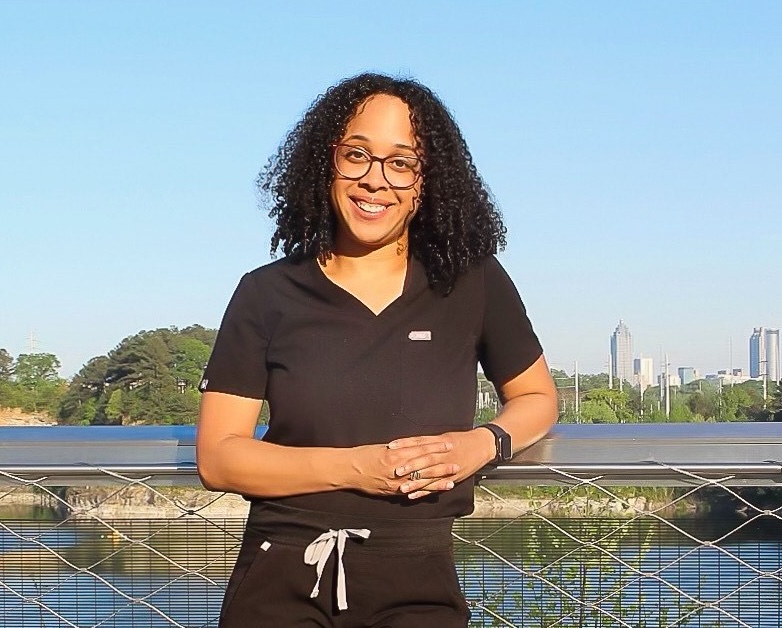MobiHealthNews' investment series will highlight various stakeholders' viewpoints on the current landscape of digital health investment and how companies should approach investors and navigate funding opportunities. The following is part one of an eight-part series:
Digital health startups in the U.S. raised $5.7 billion across 266 deals in the first half of 2024, and investment in the sector is on track to surpass year-end totals seen in 2019 and 2023, two years comparable to periods outside the COVID-19 pandemic. Still, many startups are striving to understand the best way to garner funding in the sector.
Daisy Wolf, investing partner at Andreessen Horowitz (a16z), sat down with MobiHealthNews to discuss the types of technology making the biggest impact in healthcare and how founders should approach investors.
MobiHealthNews: How do you see the digital health landscape currently unfolding?
Daisy Wolf: The health tech landscape is really exciting and promising right now. We're seeing new companies get founded every day with really promising founders who have decided now is the moment to take the leap in that there is a lot of potential for impact. And we have a huge array of founders that we've been working with for a number of years. We feel the landscape is in a pretty positive place.
MHN: Some individuals say we're in an AI bubble where almost every company touts its use of AI, but some models are less robust than others and, therefore, could be harmful to patients. Do you see the majority of digital health companies headed in the right direction, especially in regard to AI implementation and utilization?
Wolf: I think we're at a really exciting time. The reality with startups is that the vast majority of startups fail, whether they are AI startups or not. That is the truth of venture. But I think that this is a great time to found a company.
There's a lot of exciting things about AI in healthcare. One way we've been thinking about it is that healthcare is a fifth of the economy and it's the last part of the economy that has really yet to be infiltrated and changed by technology.
We, as patients and consumers, experience that pain every single day when we're asked to fill out the same form we filled out 100 times at the doctor's office, when we can't get an answer, when our data sits between, like, 17 different doctor's offices that we've visited in our lifetime that don't speak to each other.
The industry is the last industry that has call centers of people who are faxing and answering phones and scheduling appointments manually.
If you look at the developing world, it went straight from cash and mobile payments and leapfrogged over credit cards. We see that opportunity happening in healthcare right now, where we're going to go straight from humans to AI and leapfrogging over traditional enterprise SaaS.
And so companies don't have to go to these overburdened IT teams and overworked doctors who do not want to be trained on another set of software. It's going to be like, hey, we're just going to hand you an AI "human" that takes more and more of the work off your plate and allows you to focus on the really impactful issues and spend less time doing the minutiae and the things that can be automated away.
If you look at this quadrant of application layer to infrastructure and clinical to back office, the most activity we're seeing in AI today is back office and application layer, just because the money needed for infrastructure companies is a limiting factor to how many are started. And so there's tons of companies going after prior authorization and scheduling and all of this low-hanging fruit.
I think it will be amazing for healthcare companies to operate more efficiently, for clinicians to have more time to actually treat people and focus on doing what they know how to do, and for patients, because we've all been frustrated time and time again.
MHN: What has been your experience with how digital health founders approach investors? Are there things some of them do wrong or things they can do better?
Wolf: I think founders are approaching investors, for the most part, correctly. There's been a professionalization of startup founders and venture capital and how the communications work. So, I think for the most part it's pretty good.
My advice to founders is to know the difference between the firms. Different firms are interested in different things.
For example, we are fundamentally, at our firm, optimists. We take big swings. We believe technology is going to change healthcare and every industry for the better, and we're interested in talking to really ambitious founders who want to do something that's really transformational and can build generational companies that will change healthcare for decades to come. So, I think you have to understand the kind of investor you're talking to.
MHN: How have you seen the investment landscape adjust following the pandemic?
Wolf: Digital health was operating in this silo outside of the healthcare system and then COVID changed everything. Traditional healthcare was like, "Whoa, we need to rely on digital health to reach people right now, in these moments." Telemedicine, obviously, skyrocketed. We got payer coverage of telemedicine at mass scale for the first time.
So, I think as a result of COVID, you saw digital health, as people say – we call it healthcare technology, health tech – and traditional healthcare begin to merge, and now we see this every day.
Most of our portfolio companies, not all, are working with the traditional healthcare system in some way, shape or form, and there's a lot that traditional healthcare is good at and there is a whole lot that they're really bad at and need a ton of help with.
And so we have companies that are building really successful, impactful businesses doing consumer engagement for traditional healthcare, automating payment flows for traditional healthcare or catching errors in treatment for traditional healthcare.
That's really exciting because when you think about how you impact as many people as possible, you've got to kind of play within the traditional healthcare system. That's my biggest observation about what COVID did to our industry.
MHN: Is there anything else you want to add that you think would be beneficial for readers of this investment series?
Wolf: There is always really good capital for really good founders and good ideas. As a founder, it is easy to get caught up in like, "Is the market good right now? Is the market bad right now?" But the reality is that we always have capital for great founders and great companies. And that's true at times when people say the market is horrible; it's true at times when people say the market is great.
I think it's easy for founders to get too worried, for lack of a better term. Just know that there are people out here and we believe technology is going to transform healthcare and make the world a better place, and we're backing founders every day who are doing that.




![Healthy Coconut Caramel Almond Flour Cookies [grain-free + no added sugar]](https://i0.wp.com/healthyhelperkaila.com/wp-content/uploads/2024/09/an-overhead-photo-of-a-batch-of-homemade-caramel-a-VkJtFzoJT9OQ1HcdIYLKvA-o2Ndk98OQKKglk_fop8vPA.png?fit=863%2C850&ssl=1)





![Healthy No-Bake Mint Chocolate Truffles [high protein + no added sugar]](https://healthyhelperkaila.com/wp-content/uploads/2024/08/IMG_1902-e1724891697681.png)







 English (US) ·
English (US) ·